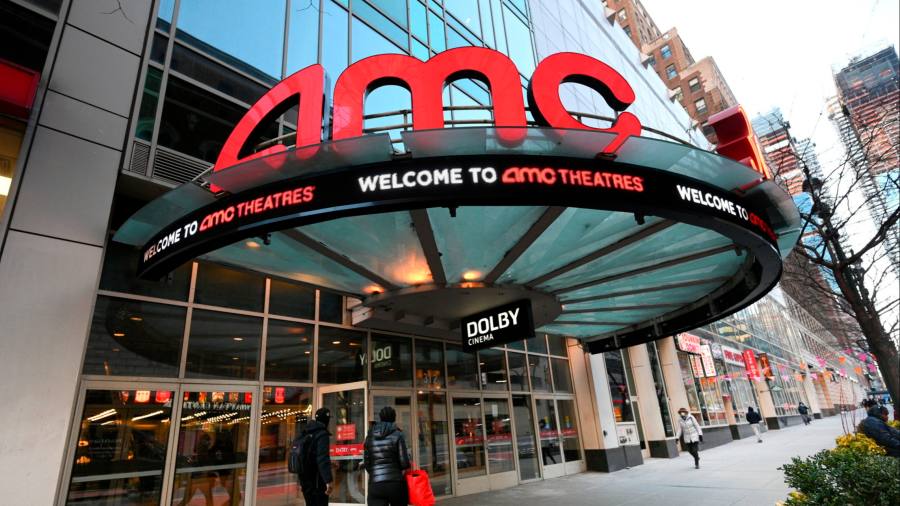Receive free AMC Entertainment updates
We’ll send you a myFT Daily Digest email rounding up the latest AMC Entertainment news every morning.
Shares of AMC soared as much as 100 per cent after a Delaware judge rejected a $129mn settlement between the cinema chain and its common stockholders that would have paved the way for it to sell more shares to help it stay afloat.
Morgan Zurn, a judge in the Delaware Chancery Court, ruled that the deal — which would pay off common stockholders in exchange for allowing holders of its preferred shares to convert their holdings into common stock — was unfair, since it would have blocked any future legal claims against the company from preferred shareholders. The company had not sought preferred shareholders’ consent for the settlement.
AMC had suffered huge losses during the coronavirus pandemic with cinemas closed due to shutdown orders. The company’s chief executive seized on AMC’s status as a social media “meme stock” to aggressively sell stock to increase liquidity.
However, as the company sold more stock it needed stockholder approval to increase how many authorised shares it could sell, co-operation that shareholders, some worried about dilution, would not provide.
The company in 2022 created convertible preferred stock known as APEs as a way to raise cash, although it ultimately hoped to get shareholder approval to collapse it into common shares in order to simplify its capital structure and reduce the discount at which APEs traded in the market.
AMC, which is heavily indebted, had late last year sold APEs to a friendly hedge fund, Antara Capital, in an attempt to win a shareholder vote to get permission to sell more equity.
The transaction included a provision that the hedge fund would vote its preferred stock to effect the authorisation of more shares.
Some shareholders sought to block the gambit in court, claiming the deal violated the rights of existing common shareholders who had previously rejected attempts to authorise more common shares.
Plaintiffs ultimately negotiated a settlement that would give common stockholders a stock grant valued at $129mn in exchange for dropping their objection to the preferred stock transaction. The settlement required court approval.
The decision to reject the settlement came as a surprise to many observers. A “special master” appointed by the court to study shareholder objections to the settlement issued a report in June in favour of the deal.
The opinion noted that nearly 2,000 AMC shareholders contacted the court during the course of the litigation, a reaction it described as “unprecedented” and that underscored the company’s highly charged retail investor base.
Zurn, the Delaware judge, noted in her opinion the unique circumstances of the case.
“AMC’s stockholder base is extraordinary. It includes a great number of human owners who care passionately about their stock ownership and the Company. Many of them are connected to each other online . . . Such issues raised by AMC stockholders include theories about synthetic shares, Wall Street corruption, dark pool trading, insider trading, and RICO violations, and a request for a share count.”
AMC did not immediately comment on the court ruling. Its shares rose as much as 100 per cent in after-hours trading following the decision, before trimming those gains to trade up about 75 per cent, while APEs fell about 20 per cent.
Read the full article here















